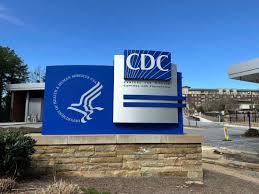
The United States Centres for Disease Control and Prevention (US CDC) has warned that limited diagnostic capacity for Acute Febrile Illness (AFI) in Nigeria is leading to widespread misdiagnosis, underdiagnosis and inappropriate treatment of patients.
The U.S. CDC raised the concern during a media roundtable in Abuja on Wednesday, organised to highlight its support for AFI surveillance in partnership with the Nigeria Centre for Disease Control and Prevention (NCDC) and other stakeholders.
AFI is characterised by the sudden onset of fever, with or without other symptoms, and can be caused by bacteria, viruses, protozoa, or fungi. It is most common in children and young adults but affects all age groups.
The Senior Public Health Specialist for Epidemiology and Surveillance at U.S. CDC Nigeria, Oladipupo Ipadeola, said the overlapping symptoms of AFI make diagnosis particularly difficult in the absence of strong laboratory support.
“Limited laboratory diagnostic capacity for AFI is leading to misdiagnosis or underdiagnosis of diseases, and inappropriate treatment and management of patients.
“AFI surveillance is crucial for early identification of infectious disease outbreaks, understanding their epidemiology, and implementing control measures”, Ipadeola added.
He stressed that Nigeria must address systemic gaps, including weak policy frameworks, limited testing facilities, and poor diagnostic infrastructure, to strengthen AFI surveillance.
“A good understanding of AFI cases in a country allows ministries of health and other public health institutions to strengthen surveillance and laboratory capacity,” he added.
Despite these challenges, Ipadeola noted that the Federal Government has shown commitment through several strategies and initiatives aimed at improving AFI surveillance and response.



